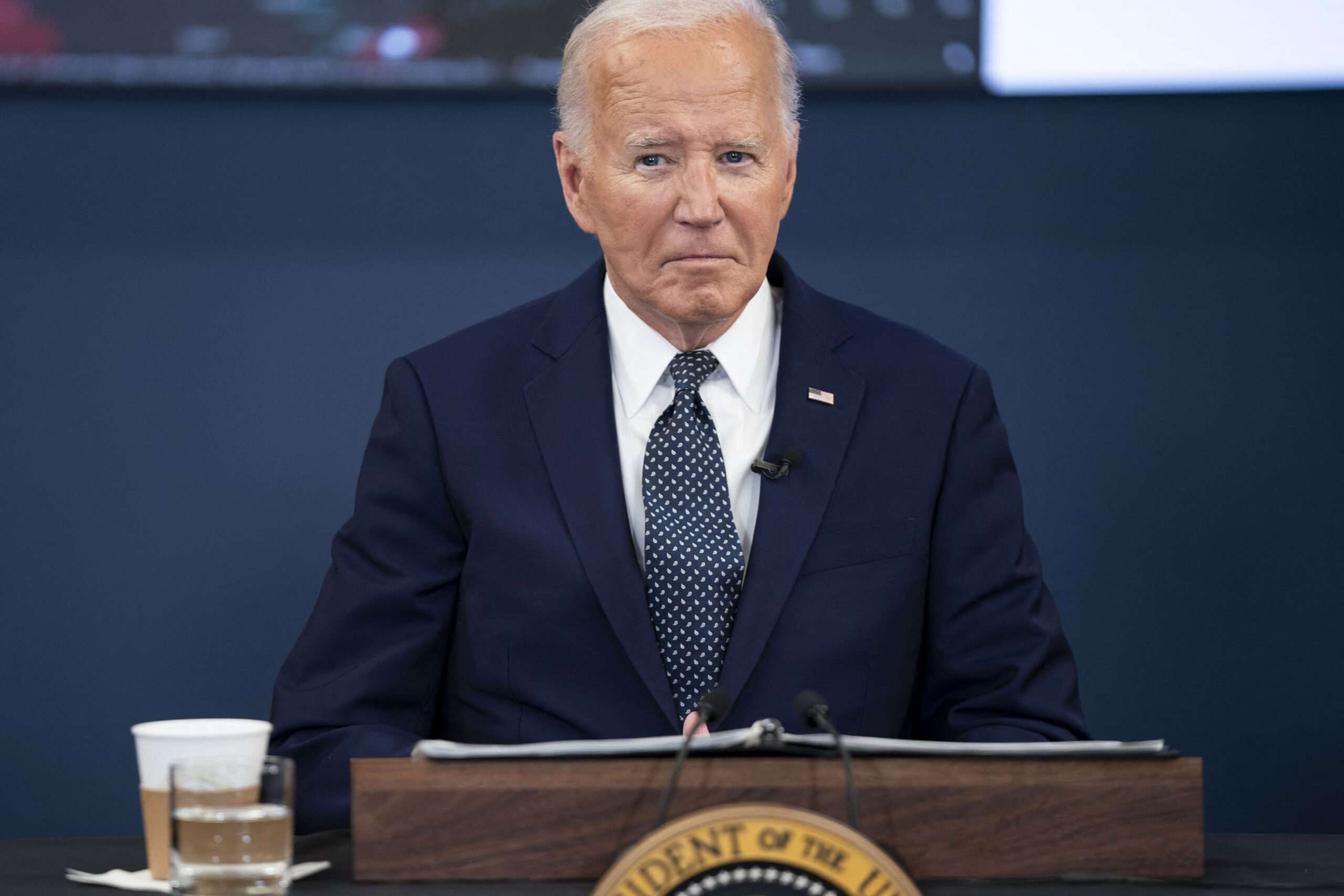
Addressing questions from reporters at the White House on Wednesday, Press Secretary Karine Jean-Pierre once again attributed President Joe Biden’s disastrous debate performance to jet lag following travel and a cold.
“He had a schedule that was rigorous, the travel he had to do, going from Italy all the way to the west coast,” said Jean-Pierre. “I think, that can have a toll on anyone, whether you’re 20 or 80.”
Most people don’t get to travel in as much relative comfort as the president of the United States—there’s a bed on Air Force One, after all—but yes, it’s true that travel can be exhausting. To be clear, however, the debate took place a full 12 days after Biden had returned from his trip. Moreover, the fact that the President of the United States is such a demanding job is precisely why voters are so worried about Biden’s advanced age.
Want more on free speech, social media, and why everyone in the media is wrong everywhere all the time? Sign up for Free Media from Reason and Robby Soave.
The reporters in the room, to their credit, were unimpressed by Jean-Pierre’s attempt to spin the situation and pressed her to address the public’s mounting concerns about Biden’s fitness for office. Several elected Democrats and prominent spokespersons for the party, including Julián Castro and Tim Ryan, have called on Biden to drop out. The Atlantic, The Chicago Tribune, The New York Times, and several of its columnists think he should exit the race. And most importantly, support for Biden is cratering: 74 percent of overall voters now say he is too old to be president, and former President Donald Trump has widened his lead substantially. Vice President Kamala Harris now polls two points better against Trump than Biden does, though Trump is still ahead of her.
But why did it take so long for the mainstream media to pursue this line of inquiry, even as evidence of Biden’s cognitive decline became increasingly obvious? Well before the debate, the American people have consistently expressed a high degree of concern about the president’s ability to serve a second term. Polls dating back to February found that a majority of Democrats and three-quarters of overall voters had serious qualms.
The White House treated this as a non-issue. Team Biden lashed out at anyone who managed to inspire doubts about Biden’s fitness, including special counsel Robert Hur, whose description of Biden as an “elderly man with a poor memory” caused apoplexy among the president’s defenders. Jean-Pierre repeatedly claimed that uncomfortable videos of Biden wandering off awkwardly were misleading but “manipulated.” While the phrase “cheap fake” became the go-to term for the videos in question, Jean-Pierre went much further—she said they were “deep fakes,” i.e. that they were significantly altered on a digital level.
“And instead of talking about the President’s performance in office—and what I mean by that is his legislative wins, what he’s been able to do for the American people across the country—we’re seeing these deep fakes, these manipulated videos,” she said on June 17. “And it is, again, done in bad faith.”
The bad-faith actor here was Jean-Pierre, though given her role, maybe that’s to be expected. The bigger question is why the mainstream media fell for the spin—and aided it.
Multiple mainstream news organizations wholly adopt the White House’s talking points with respect to cheap fakes. The Washington Post reported that Republicans were weaponizing “deceptively edited videos” of Biden. The Poynter Institute said the same. So did the Associated Press, CNN, and of course, The New York Times. It was Republicans pounce, and then some.
Former New York Times executive editor Jill Abramson suspects that the media’s collective loathing of Trump caused the White House press corps to shirk its duty in this regard.
“I do think if enough reporters had pushed, the story was reportable,” she told Semafor. “I worry that too many journalists didn’t try to get the story because they did not want to be accused of helping elect Donald Trump.”
If that’s the motivation—or even subtle bias affecting the reporting—it’s proven to be tremendously counterproductive, even from the standpoint of helping Biden. The American people learned very suddenly, all at once, that the president is compromised by his age. At this point, there are questions about whether Biden should be the president right now, let alone whether he could possibly serve another four years.
Undoubtedly, the White House wanted to keep this fact under wraps until Biden was safely over the finish line in November. But media organizations that participated, even unwittingly, in this farce have not only made a subsequent Democratic administration far less likely—they have profoundly undermined their own integrity.
I’m joined by Amber Duke to discuss Biden’s abysmal debate performance and the media’s reaction, Tulsi Gabbard’s take on drafting women, and the Supreme Court’s decision in the Trump immunity case.
I’m currently rewatching It’s Always Sunny in Philadelphia and catching up on the most recent two seasons, which I had missed. The most recent finale, “Dennis Takes a Mental Health Day,” proves that the show has not declined in quality whatsoever, even after an impressive two decades on the air. Dennis Reynolds is all of us.

